"Caretaking not only increased the stakes, but made the pages of my life turn faster."
MY OCEANS author Christina Rivera on how the pressures of parenthood that build tension, stakes, and conflict in life—similarly serve the craft & shape of writing.
Hello there! Welcome to Write More, Be Less Careful, a newsletter about making space for creative practice in a busy life. My newest book, The Good Mother Myth, is out now!
This is a good creatures interview, a series that explores the intersection of caregiving and creative practice. If you know (or are!) a good creature whose work we should feature, send me an email—you can just reply to this newsletter.
❤️️ Clicking the little red heart at the top or bottom is a great way to help other creative-caregivers find us! ❤️️
Today’s interview is with
, whose new book My Oceans is out now. Her work, about animals and mothering and raising children through the existential dread of climate change, intersects so perfectly with the themes of the series that I just had to ask her to contribute. Below, we talk about making space for writing even when (especially when!) you truly don’t have the time, neglecting other pursuits in favor of writing, and why “caretaking presses upon creativity in diamond-like ways.”Who do you care for?
I care for my two children (ages 10 and 12), a fear-aggressive rescue dog (age 3-ish), an aging house (born in the 70s), a marriage (14 years), a birth family and multiple pods of women-friends, a planet in ecological crisis (age 4.5 billion years) and all its “endlings” (last of animal species, like this endangered porpoise) who keep me up at night in concern, grief, and love.
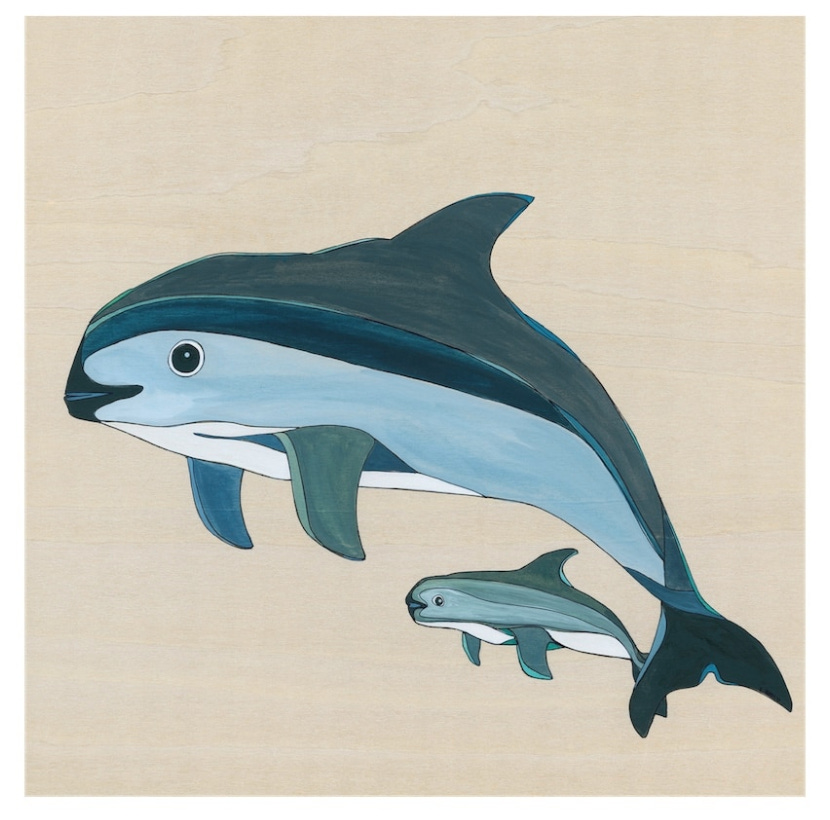
What kind of creative work do you do?
I write. I love writing maybe-too much. The bucket from which I pull my creativity is limited, and many of my other pursuits suffer. My garden wasn’t put to bed before winter. My home could be organized in more beautiful ways. My daughter's hair could be braided every morning the way she loves it. But, alas, I disproportionately invest most of my non-urgent minutes into writing and reading-to-write. I’m obsessed. And I’m (finally!) approaching the age where I’m done apologizing for that.
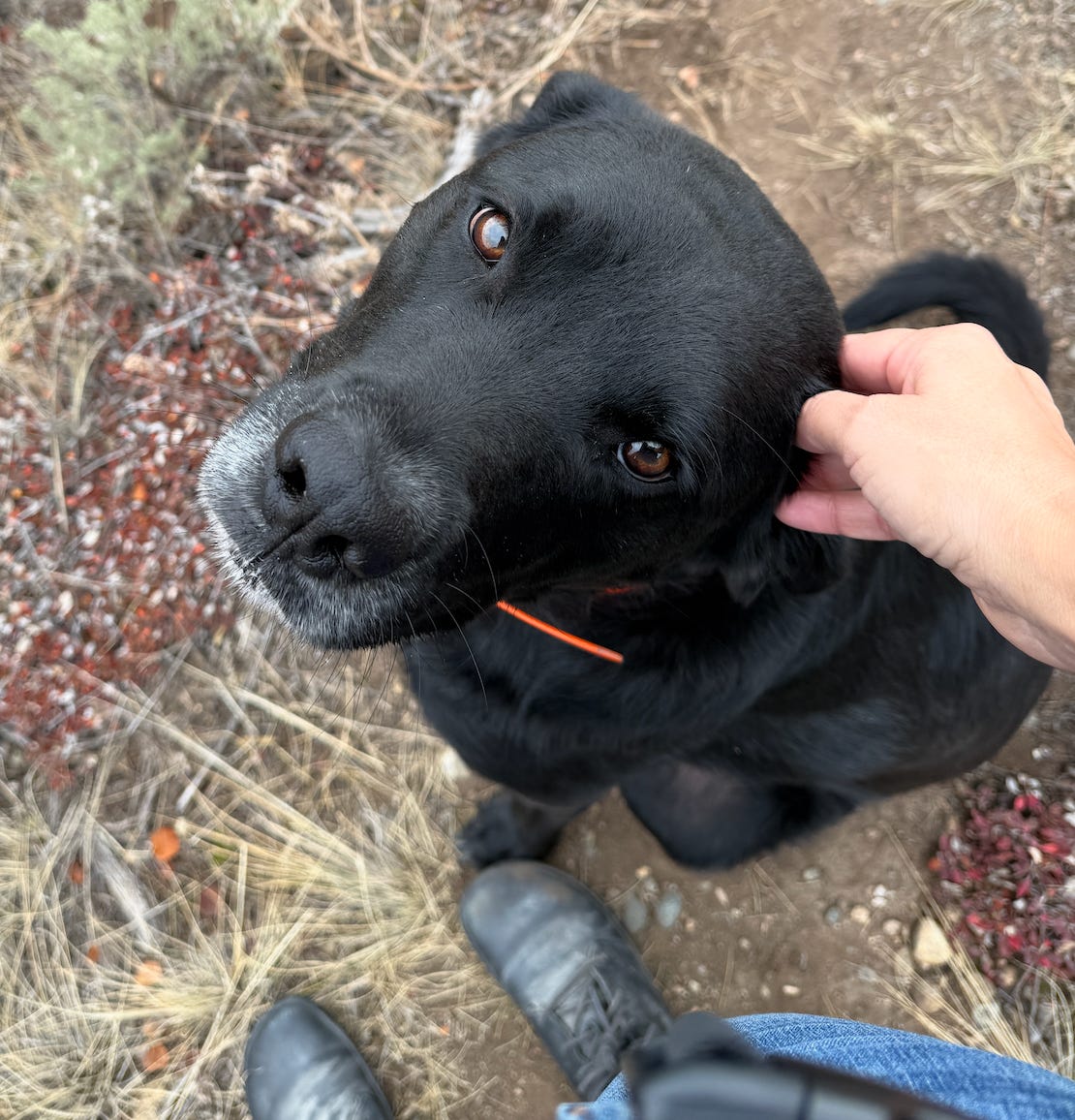
This tension between caretaking and creativity feels always, to me, like a matter of survival. And I think the same pressures of parenthood that build stakes and conflict in life can also serve the craft and process of writing.
What are some ways care-giving fosters creativity and vice-versa?
Caregiving fuels my creativity by making every minute a gemstone of time. When a minute can be used in a hundred caregiving ways (washing a dish, walking the dog, on a date night with my husband, earning money, weeding a garden), it makes the choice of using that minute—to put pen to paper—both a recognized privilege and a delicious treat.
Last week, I was with my family on “spring break.” (That’s in quotes for all the people who know the labor of managing school “vacations.”) My daughter and her friend were playing in the pool, and I pulled out my pen and journal. They were competent swimmers in a shallow pool, but I still had to devote a percentage of my awareness to ensuring neither of them (silently) drowned. I could get a few lines down, but had to look up every twenty seconds and be vigilantly aware of any dangerous silence. This tension between caretaking and creativity feels always, to me, like a matter of survival. And I think the same pressures of parenthood that build stakes and conflict in life can also serve the craft and process of writing. I often describe the work I created during my heaviest years of caretaking as “faceted.” The writing is fragmented because it reflects my embodiment of motherhood. The result isn’t narrative. But it is standalone. It glimmers from different angles. Like shattered glass.
So I think caretaking presses upon creativity in diamond-like ways. Does creativity similarly serve caregiving? Maybe more for others than me. I’ve just never been the kind of parent who got on the floor and played with tea sets or toy cars with my kids. Instead, I was/am the mom who sets my kids up for safe, independent play—and then reaches for my pen or book. Maybe I’m fostering self-entertaining and -reliant children. Or maybe I’m selfish. Time (or my children) will tell another story. One I’ll live with. But the hollowed-out me in my “unselfish” parallel life is also tapping me on the shoulder and whispering, “There was never any other choice.” My mother, if it matters, mothered me in this unattached but loving way. My daughter is already inclined toward similar artistic pursuits, and I want her to know, by my example, that she is enough as she is.
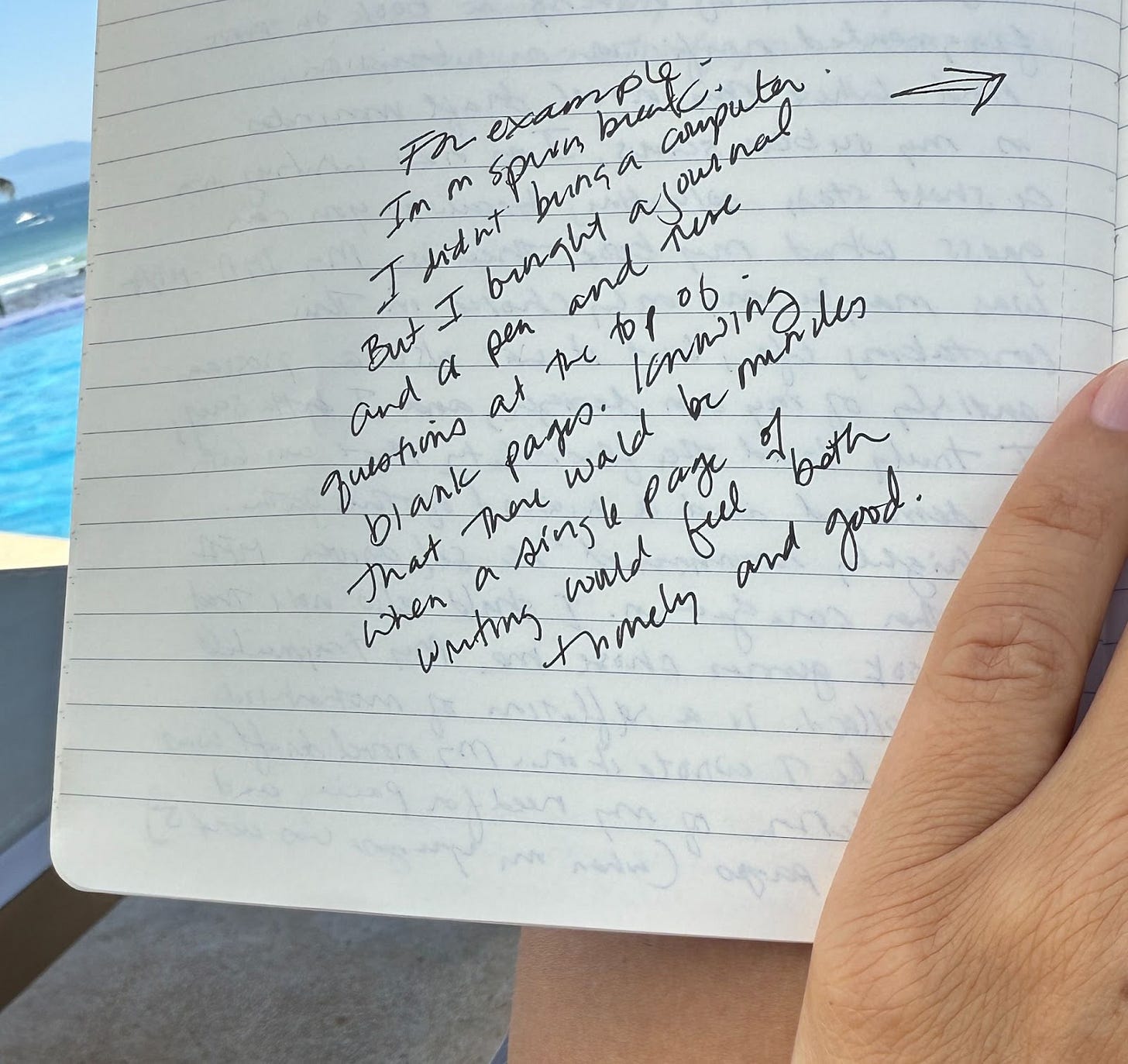
What's changed about your process/genre?
I don't have an MFA because parenthood was my portal to becoming a writer, yet going back to school and parenthood were not compatible for me. Instead, I took online classes. A lot of them. Probably the equivalent of an MFA, but on my own terms, schedule, and of my own design. First, I took essay classes. Years of them. Then query classes, a book proposal course, classes on how to publish excerpts, and then more classes on how to weave a book of essays together. When my book of essays was done, I took fiction classes. I wrote a draft of a novel, and then took classes to workshop that draft. That novel revision is currently marinating in my subconscious (which can look a lot like “neglected” from the outside, but is not!) To offset the soul-drain of marketing my debut book, I needed to write fresh pages. So I’ve recently been taking classes on, and writing into, short stories. My DIY-MFA was built of necessity, but I loved the flexibility of my individualized path. And also the effect! My fragmented book of essays reflects my fracturing experience of early motherhood. My novel draft reflects the narrative drive, and page-turning momentum, I needed in my life when my youngest started kindergarten. My weave of short stories probably hints at my next life transition. Sometimes I can’t see these things until I look back. These books just show up and start talking to me. It’s my job to listen, feel out a shape, and find their voice. Flexibility is as much a mandate of my caretaking, as my craft!
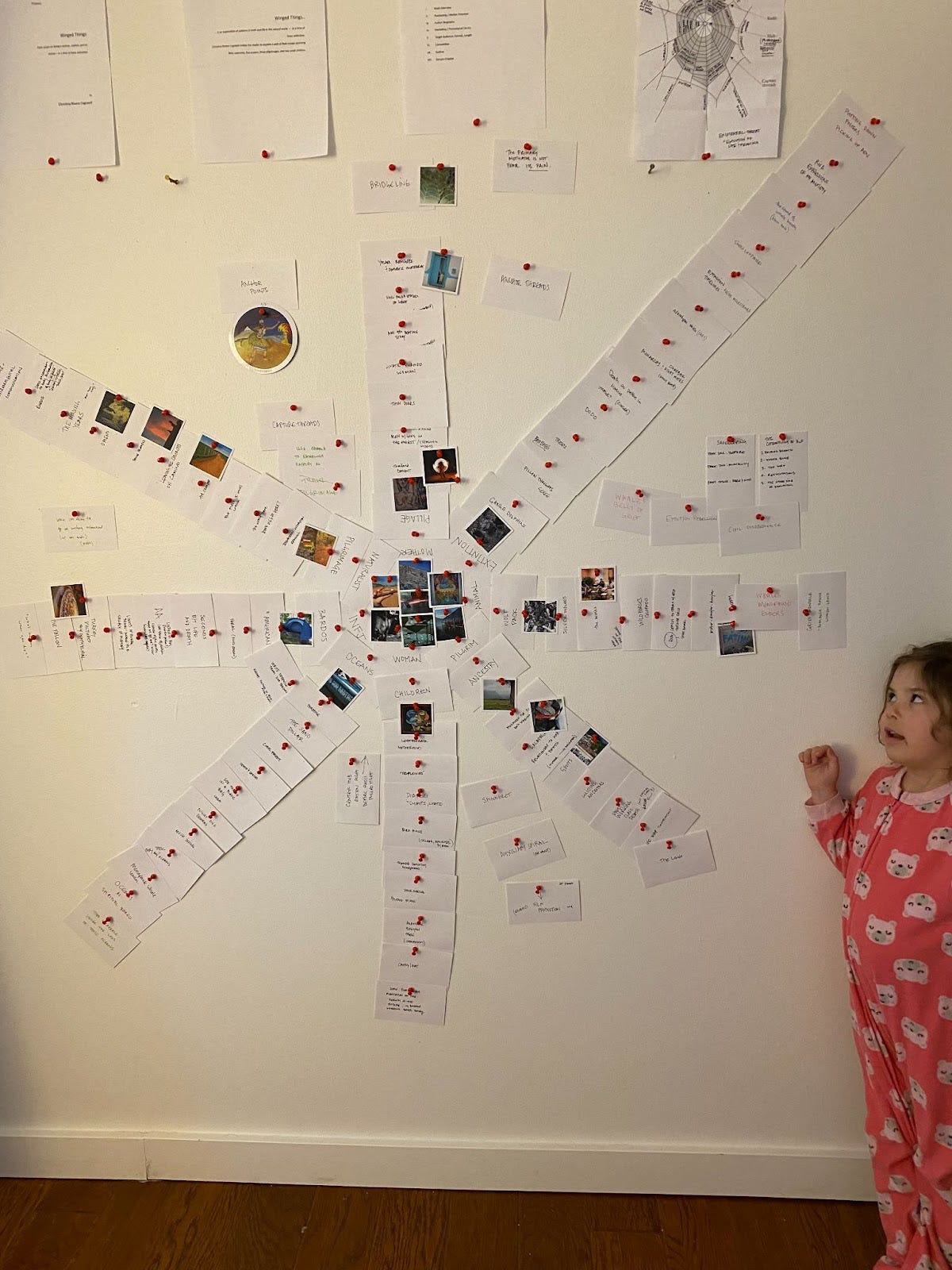
What has caregiving given you / taken away from you?
Caregiving attached me to this life in ways I did not expect, and maybe didn’t want. I was much more at ease with the reality of death before having babies. Now I fear (daily) what the lives of my children would look like without me. It's so heavy—this weight, which I’ve written about. Especially on this planet, in the year 2025. I love my path and am attached to it. But that doesn’t mean I wouldn’t advise others differently. (I was just interrupted five times by a child in the writing of that last sentence. So also consider if the life of constant interruptions is one that aligns with your personality. My husband—an extroverted, hyper-social type—was made for this juggling act. I’m unsure if I could have done it without him, or even with another person more like me!) Caretaking not only increased the stakes, but made the pages of my life turn faster. Life is now more propulsive. But like writing a book, those are craft decisions. Do you want a slower, more poetic, literary book of life? Or a propulsive, novel-esque, book of life? These are choices a younger creative can contemplate, weigh, and decide. Assuming she has reproductive freedoms. Which, tragically, is a big assumption these days. And probably one of the reasons that reproductive justice is a connecting theme between all three of my book projects. I would not be writing this sentence were it not for my reproductive freedoms. So maybe I’m honoring that gift by writing in circles around it?
My advice to writing-caregivers is to remember that creativity can be seasonal in the same way that caregiving is seasonal. Some seasons are for getting up in the dark to plant words/seeds. Some seasons are for sleeping in and writing down dreams. Others are for lists, because short bursts of ideas are all you have time for. Some months are purely for surviving storms.
What advice would you give someone who has a creative practice and is embarking on becoming a caregiver?
My advice to writing-caregivers is to remember that creativity can be seasonal in the same way that caregiving is seasonal. Some seasons are for getting up in the dark to plant words/seeds. Some seasons are for sleeping in and writing down dreams. Others are for lists, because short bursts of ideas are all you have time for. Some months are purely for surviving storms. And many seasons are for incubation—especially those early parenting years. Hopefully, there are seasons, too, for harvesting. One of the very first paragraphs of MY OCEANS was born during a month of prenatal depression in between two failed pregnancies. I struggled to fill that page. But a few years later, I unburied that journal and found those paragraphs. First an essay, then a book, was born of that single page. So know the seasons will inevitably turn, just like the planet and the tides and the face of the moon upon the Earth. Pick the tools and goals appropriate to your season, re-adjust regularly, and stay flexible.
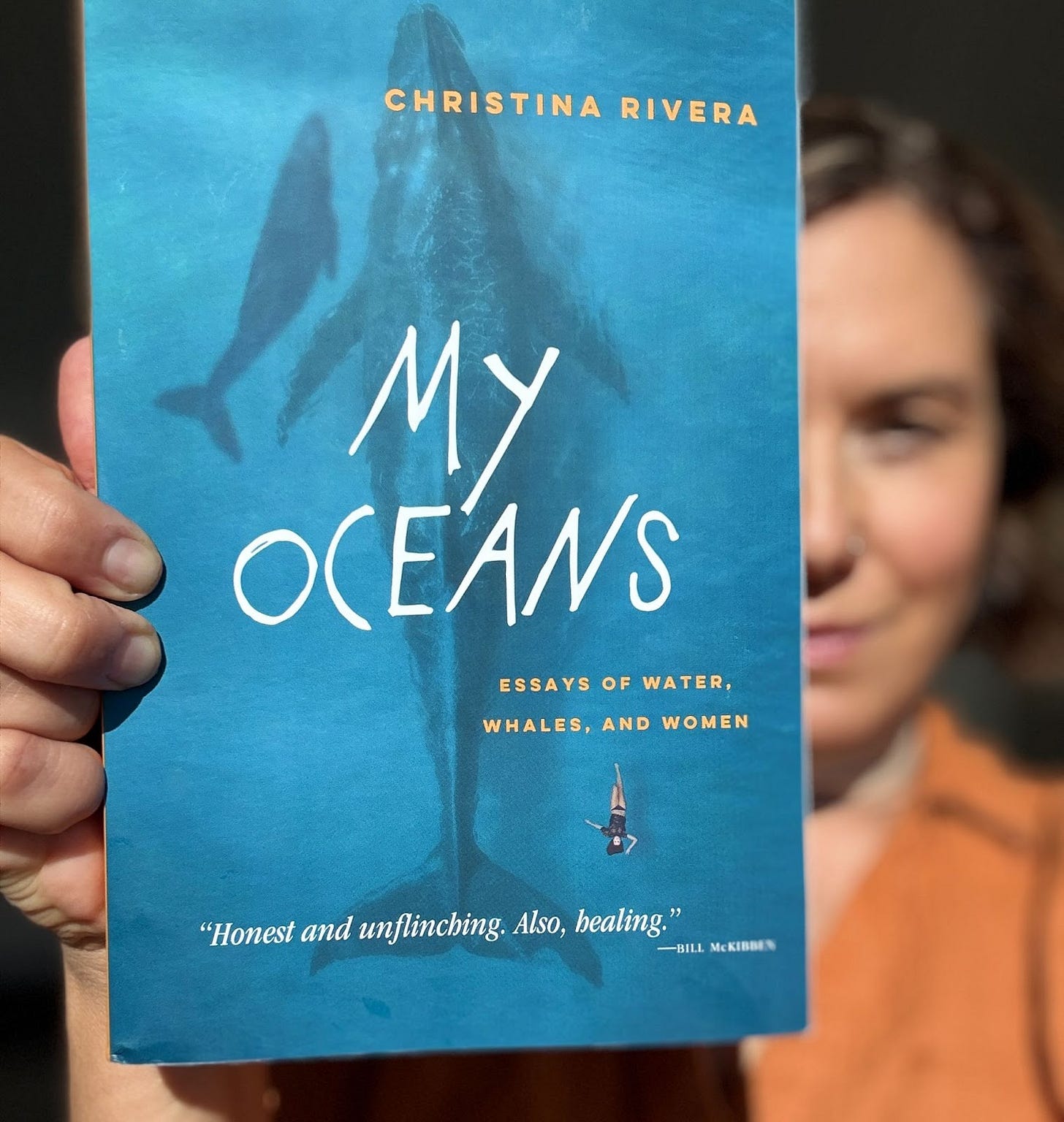
One more tip for those early or high-caretaking years: I highly recommend registering for an evening writing/creative class that doesn’t fit into your schedule. Do it anyway. Force your schedule (and the people in your life) to make room. Get yourself a reason to either leave the house or shut a door (in your home) between yourself and your caretaking. Just one hour a week can keep a creative world well-seeded and rooted. Unlike my garden.
Christina Rivera is the author of MY OCEANS: Essays of Water, Whales, and Women (Northwestern University Press/Curbstone Books, March 2025). Her work has won a Pushcart Prize, the John Burroughs Nature Essay Award, and appeared in Orion, The Cut, The Kenyon Review, Longreads, and Terrain.org, among other places. Christina credits the fragmentation of her writing to her two young children and is also the grateful recipient of focused creative residencies at Millay Arts, Craigardan, and the Wellstone Center. You can learn more about Christina and MY OCEANS at www.christinarivera.com, subscribe to her irregular series of blue love notes MobyBytes on Substack, or (for a limited/seasonal time) invite her to visit your book club or writing group (while she’s still celebrating her book launch)!
Write More, Be Less Careful is a newsletter about why writing is hard & how to do it anyway. I’m so glad you’re here.
If Write More has helped you in your creative life, you can support me by sharing it online or sending it to a friend, or by ordering my new book, The Good Mother Myth.








No way—I just read a couple of Christina Rivera’s essays two days ago after hearing about her book through a link to sample query letters (Christina’s caught my attention) in Jane Friedman’s newsletter. What a coincidence!! I look forward to reading this soon.
Love this from Christina - "Caregiving fuels my creativity by making every minute a gemstone of time. When a minute can be used in a hundred caregiving ways (washing a dish, walking the dog, on a date night with my husband, earning money, weeding a garden), it makes the choice of using that minute—to put pen to paper—both a recognized privilege and a delicious treat."